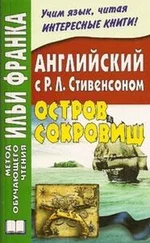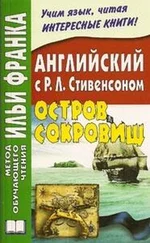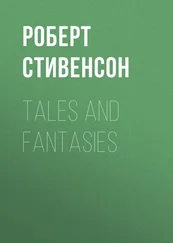Роберт Стивенсон - Ballads
Здесь есть возможность читать онлайн «Роберт Стивенсон - Ballads» — ознакомительный отрывок электронной книги совершенно бесплатно, а после прочтения отрывка купить полную версию. В некоторых случаях можно слушать аудио, скачать через торрент в формате fb2 и присутствует краткое содержание. Жанр: literature_19, Поэзия, foreign_antique, foreign_prose, foreign_poetry, на английском языке. Описание произведения, (предисловие) а так же отзывы посетителей доступны на портале библиотеки ЛибКат.
- Название:Ballads
- Автор:
- Жанр:
- Год:неизвестен
- ISBN:нет данных
- Рейтинг книги:5 / 5. Голосов: 1
-
Избранное:Добавить в избранное
- Отзывы:
-
Ваша оценка:
- 100
- 1
- 2
- 3
- 4
- 5
Ballads: краткое содержание, описание и аннотация
Предлагаем к чтению аннотацию, описание, краткое содержание или предисловие (зависит от того, что написал сам автор книги «Ballads»). Если вы не нашли необходимую информацию о книге — напишите в комментариях, мы постараемся отыскать её.
Ballads — читать онлайн ознакомительный отрывок
Ниже представлен текст книги, разбитый по страницам. Система сохранения места последней прочитанной страницы, позволяет с удобством читать онлайн бесплатно книгу «Ballads», без необходимости каждый раз заново искать на чём Вы остановились. Поставьте закладку, и сможете в любой момент перейти на страницу, на которой закончили чтение.
Интервал:
Закладка:
In the early fall of the night, Hiopa came to the shore,
And beheld and counted the comers, and lo, they were forty score:
The pelting feet of the babes that ran already and played,
The clean-lipped smile of the boy, the slender breasts of the maid,
And mighty limbs of women, stalwart mothers of men.
The sires stood forth unabashed; but a little back from his ken
Clustered the scarcely nubile, the lads and maids, in a ring,
Fain of each other, afraid of themselves, aware of the king
And aping behaviour, but clinging together with hands and eyes,
With looks that were kind like kisses, and laughter tender as sighs.
There, too, the grandsire stood, raising his silver crest,
And the impotent hands of a suckling groped in his barren breast.
The childhood of love, the pair well married, the innocent brood,
The tale of the generations repeated and ever renewed —
Hiopa beheld them together, all the ages of man,
And a moment shook in his purpose.
But these were the foes of his clan,
And he trod upon pity, and came, and civilly greeted the king,
And gravely entreated Rahéro; and for all that could fight or sing,
And claimed a name in the land, had fitting phrases of praise;
But with all who were well-descended he spoke of the ancient days.
And “’Tis true,” said he, “that in Paea the victual rots on the ground;
But, friends, your number is many; and pigs must be hunted and found,
And the lads troop to the mountains to bring the féis down,
And around the bowls of the kava cluster the maids of the town.
So, for to-night, sleep here; but king, common, and priest
To-morrow, in order due, shall sit with me in the feast.”
Sleepless the live-long night, Hiopa’s followers toiled.
The pigs screamed and were slaughtered; the spars of the guest-house oiled,
The leaves spread on the floor. In many a mountain glen
The moon drew shadows of trees on the naked bodies of men
Plucking and bearing fruits; and in all the bounds of the town
Red glowed the cocoanut fires, and were buried and trodden down.
Thus did seven of the yottowas toil with their tale of the clan,
Конец ознакомительного фрагмента.
Текст предоставлен ООО «ЛитРес».
Прочитайте эту книгу целиком, купив полную легальную версию на ЛитРес.
Безопасно оплатить книгу можно банковской картой Visa, MasterCard, Maestro, со счета мобильного телефона, с платежного терминала, в салоне МТС или Связной, через PayPal, WebMoney, Яндекс.Деньги, QIWI Кошелек, бонусными картами или другим удобным Вам способом.
1
Note 1, page 5. “ The aito ,” quasi champion, or brave. One skilled in the use of some weapon, who wandered the country challenging distinguished rivals and taking part in local quarrels. It was in the natural course of his advancement to be at last employed by a chief, or king; and it would then be a part of his duties to purvey the victim for sacrifice. One of the doomed families was indicated; the aito took his weapon and went forth alone; a little behind him bearers followed with the sacrificial basket. Sometimes the victim showed fight, sometimes prevailed; more often, without doubt, he fell. But whatever body was found, the bearers indifferently took up.
2
Note 2, page 7. “ Pai ,” “ Honoura ,” and “ Ahupu .” Legendary persons of Tahiti, all natives of Taiárapu. Of the first two, I have collected singular although imperfect legends, which I hope soon to lay before the public in another place. Of Ahupu, except in snatches of song, little memory appears to linger. She dwelt at least about Tepari, – “the sea-cliffs,” – the eastern fastness of the isle; walked by paths known only to herself upon the mountains; was courted by dangerous suitors who came swimming from adjacent islands, and defended and rescued (as I gather) by the loyalty of native fish. My anxiety to learn more of “Ahupu Vehine” became (during my stay in Taiárapu) a cause of some diversion to that mirthful people, the inhabitants.
3
Note 3, page 10. “ Covered an oven .” The cooking fire is made in a hole in the ground, and is then buried.
4
Note 4, page 10. “ Flies .” This is perhaps an anachronism. Even speaking of to-day in Tahiti, the phrase would have to be understood as referring mainly to mosquitoes, and these only in watered valleys with close woods, such as I suppose to form the surroundings of Rahéro’s homestead. Quarter of a mile away, where the air moves freely, you shall look in vain for one.
5
Note 5, page 13. “ Hook ” of mother-of-pearl. Bright-hook fishing, and that with the spear, appear to be the favourite native methods.
6
Note 6, page 14. “ Leaves ,” the plates of Tahiti.
7
Note 7, page 16. “ Yottowas ,” so spelt for convenience of pronunciation, quasi Tacksmen in the Scottish Highlands. The organisation of eight subdistricts and eight yottowas to a division, which was in use (until yesterday) among the Tevas, I have attributed without authority to the next clan: see page 33.
8
Note 8, page 17. “ Omare ,” pronounce as a dactyl. A loaded quarter-staff, one of the two favourite weapons of the Tahitian brave; the javelin, or casting spear, was the other.
9
Note 9, page 21. “ The ribbon of light .” Still to be seen (and heard) spinning from one marae to another on Tahiti; or so I have it upon evidence that would rejoice the Psychical Society.
10
Note 10, page 23. “ Námunu-úra .” The complete name is Namunu-ura te aropa. Why it should be pronounced Námunu, dactyllically, I cannot see, but so I have always heard it. This was the clan immediately beyond the Tevas on the south coast of the island. At the date of the tale the clan organisation must have been very weak. There is no particular mention of Támatéa’s mother going to Papara, to the head chief of her own clan, which would appear her natural recourse. On the other hand, she seems to have visited various lesser chiefs among the Tevas, and these to have excused themselves solely on the danger of the enterprise. The broad distinction here drawn between Nateva and Námunu-úra is therefore not impossibly anachronistic.
11
Note 11, page 23. “ Hiopa the king .” Hiopa was really the name of the king (chief) of Vaiau; but I could never learn that of the king of Paea – pronounce to rhyme with the Indian ayah – and I gave the name where it was most needed. This note must appear otiose indeed to readers who have never heard of either of these two gentlemen; and perhaps there is only one person in the world capable at once of reading my verses and spying the inaccuracy. For him, for Mr. Tati Salmon, hereditary high chief of the Tevas, the note is solely written: a small attention from a clansman to his chief.
12
Note 12, page 25. “ Let the pigs be tapu .” It is impossible to explain tapu in a note; we have it as an English word, taboo. Suffice it, that a thing which was tapu must not be touched, nor a place that was tapu visited.
Интервал:
Закладка:
Похожие книги на «Ballads»
Представляем Вашему вниманию похожие книги на «Ballads» списком для выбора. Мы отобрали схожую по названию и смыслу литературу в надежде предоставить читателям больше вариантов отыскать новые, интересные, ещё непрочитанные произведения.
Обсуждение, отзывы о книге «Ballads» и просто собственные мнения читателей. Оставьте ваши комментарии, напишите, что Вы думаете о произведении, его смысле или главных героях. Укажите что конкретно понравилось, а что нет, и почему Вы так считаете.









